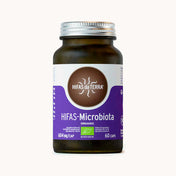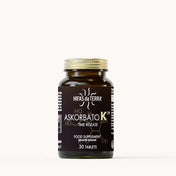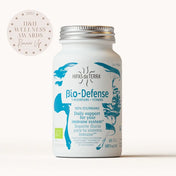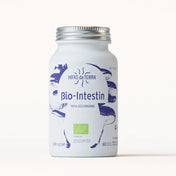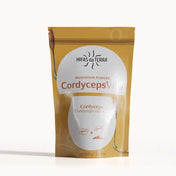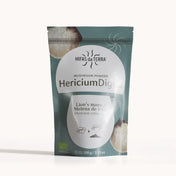Table of Contents
Is there a link between microbiota and fertility? The latest findings suggest that the balance of our microbiota or microflora could favour the onset of the gestation process. And not only that, some specialists point out that infertility without an associated cause has a common element: microbiota imbalance or dysbiosis. Specifically, in these cases, high populations of candida, enterococcus, E.coli and staphylococcus have been detected, and very low populations of lactobacilli.
Our bodies are inhabited by bacteria, viruses, fungi and other microorganisms (microbiota) that play a crucial role in various aspects of health.
The digestion of nutrients, the production of metabolites and the regulation of the immune system are the most prominent of these. In fact, it is estimated that up to 80% of the cells of the immune system are found in the tissue that makes up the gut microbiota.
DISEASES RELATED TO MICROBIOTA IMBALANCES
Thanks to global research and initiatives such as the Human Microbiome Project, among others, we now know that fertility and reproduction are also determined by the microbiota ecosystem.
Have you heard of the second brain? This name has recently been used to refer to the microbiota because, among other things, it has been shown that 50% of the body's dopamine and 95% of its serotonin originate in the digestive tract. These neurotransmitters are indicators of emotional well-being. Impaired production can be associated with stress, depression, anxiety and other mental health problems.
Altered microbiotas have also been detected in breast cancer patients. At Hifas da Terra we are studying, through the Microimmunomama project, how to influence this microbiota in order to subsequently analyse its impact on the general health of patients with this disease.
As you can see, the microbiota is a fundamental biomarker of health.

CAUSES OF INFERTILITY AND THEIR RELATIONSHIP WITH THE MICROBIOTA
These opening paragraphs give an idea of the relevance of the microbiota in fertility, but this connection can be intensified if we take into account factors such as diet, environment and the use of antibiotics.
It is estimated that 1 in 7 of couples have fertility problems (NHS). Among the causes, some studies highlight advanced age and structural alterations of the reproductive apparatus, but also cite others such as obesity, environmental pollution and a Western lifestyle (overeating and consumption of ultra-processed foods, sedentary lifestyle, chronic stress, low sun exposure and environmental pollution). This connection leads to a hypothesis: do these conditioning factors alter the microbiota, causing the same to happen to what depends on it, to a greater or lesser extent?

MICROBIOTA AND FEMALE REPRODUCTIVE HEALTH
In women, the vaginal microbiota plays a crucial role in protecting against infections and maintaining an optimal environment for fertility.
Imbalances in the vaginal microbiota may predispose women to reproductive tract infections, which in turn may affect the ability to conceive and carry a successful pregnancy to term.
In addition, some studies suggest that the gut microbiota may also influence female reproductive health, by modulating sex hormones and the immune system.
MICROBIOTA AND MALE REPRODUCTIVE HEALTH
Several studies have indicated that gut microbiota may influence sperm quality. Imbalances in the microbiota may contribute to chronic inflammation, oxidative stress and sperm DNA damage, which could negatively affect sperm motility and morphology.
The presence of specific microorganisms has also been linked to the production of male reproductive hormones, such as testosterone, which could have implications for fertility.

WHAT FOODS ARE GOOD FOR THE MICROBIOTA?
Environmental factors, such as diet and lifestyle, can play a significant role in the composition of the microbiota. A diet rich in fibre and nutrients can support a diverse and healthy microbiota. On the other hand, a diet poor in nutrients and high in saturated fats can unbalance it and affect fertility. In addition, consumption of probiotics and prebiotics may be beneficial in maintaining a balanced microbiota and supporting reproductive health.
NUTRIENT-RICH DIET
- In relation to diet, it is noted that excessive intake of saturated fats, trans-fatty acids and animal protein may have a detrimental effect on fertility.
- An intake of complex carbohydrates, fibre, monounsaturated fats and omega-3 fatty acids could have a beneficial effect.
- Adequate intakes of folic acid, B12, vitamins A, D, C and E, calcium, iron, zinc, selenium and iodine are also essential to avoid fertility problems.
ALCOHOL AND SWEETENERS
These elements have been studied in a unique way to assess their effect on the microbiota and what we already know to be directly related.
A study published in the British Journal of Pharmacology and conducted by Spanish scientists shows that alcohol consumption alters the structure but also the permeability of the intestinal barrier. This means that alcohol allows bacteria to pass into internal organs, for example, which has been linked to anxiety and depressive behaviours.
Sweeteners were recently back in the headlines after the WHO advised against their use due to possible long-term adverse effects.
In relation to the microbiota, another study, in this case published in the Biomedical Journal, showed that sucrose and sucralose significantly altered bacterial diversity in animal models. In particular, an imbalance was found between omega-3 and omega-6 fatty acids and could trigger inflammatory processes.
DO I NEED TO TAKE PROBIOTICS AND/OR PROBIOTICS?
Prebiotics, as dietary components that promote the growth of beneficial microorganisms in the gut, have emerged as potential allies for improving reproductive health and fertility.
Prebiotics are non-digestible carbohydrates that resist degradation in the small intestine and reach the colon intact, where they serve as substrates for the growth of beneficial bacteria, such as Bifidobacterium and Lactobacillus. These microorganisms play a key role in maintaining gut health and regulating the immune system, which may have positive effects on reproductive health.
EFFECT OF PREBIOTICS ON FEMALE FERTILITY
In women, prebiotics may also have positive effects on reproductive health. An optimal balance of vaginal microbiota is essential to protect against infection and maintain a suitable environment for conception and pregnancy development. The presence of prebiotics in the diet could promote the growth of beneficial bacteria in the gastrointestinal tract and influence the composition of the vaginal microbiota, thereby improving reproductive health.
EFFECT OF PREBIOTICS ON MALE FERTILITY
Other research suggests that prebiotics may have a beneficial impact on male reproductive health. By promoting the growth of beneficial bacteria, prebiotics may help reduce systemic inflammation and oxidative stress. These factors have been associated with decreased sperm quality. In addition, modulation of the gut microbiota may influence the production of male reproductive hormones, such as testosterone, which could improve fertility.

SUMMARY: THE KEYS TO MICROBIOTA AND FERTILITY CARE
Research is still in its early stages, but the data suggest a significant link between microbiota and fertility.
Maintaining a proper diet and healthy lifestyle could go a long way in improving fertility in both men and women.
Although more studies are needed, foods rich in natural prebiotics can be incorporated into the diet. Examples include garlic, onions, leeks, asparagus, bananas, artichokes and legumes, as well as kefir or kombucha.
In addition, supplementation can be considered by choosing natural food supplements made from pure extracts of mushrooms and plants with qualities. In addition, if in doubt, it is essential to consult your health professionals.



